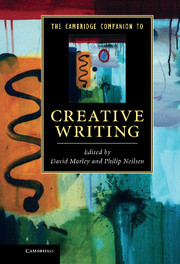Book contents
- Frontmatter
- 1 Introduction
- PART I GENRES AND TYPES
- 2 A writing lesson: the three flat tyres and the outer story
- 3 In conversation: a new approach to teaching long fiction
- 4 Genre and speculative fiction
- 5 Writing drama
- 6 Poetics and poetry
- 7 Travel writing
- 8 Creative writing and new media
- 9 Creative translation
- 10 Life writing
- PART II TOPICS
- Further reading
- Other titles in this series
- Index
4 - Genre and speculative fiction
from PART I - GENRES AND TYPES
Published online by Cambridge University Press: 28 March 2012
- Frontmatter
- 1 Introduction
- PART I GENRES AND TYPES
- 2 A writing lesson: the three flat tyres and the outer story
- 3 In conversation: a new approach to teaching long fiction
- 4 Genre and speculative fiction
- 5 Writing drama
- 6 Poetics and poetry
- 7 Travel writing
- 8 Creative writing and new media
- 9 Creative translation
- 10 Life writing
- PART II TOPICS
- Further reading
- Other titles in this series
- Index
Summary
The pleasures and possibilities of genre
This chapter is all about writing genre fiction. In that statement lies our first problem: genres are often defined by what is common, reused or similar; creative writing is often defined as the pursuit of originality, especially when being conceived, theorised and taught in tertiary institutions. Generic expectations are often viewed as ‘a constraint on textual energy’ and this perspective can act as a disincentive to write in genres. I argue here for a recognition of the pleasures and possibilities of genre and offer you some ways to approach the creation and composition of texts within one of the most widely read genres: speculative fiction.
When creative writers choose to write genre fiction – fantasy, historical, crime and so on – they have to grapple with unique complexities regarding how their work is positioned in a literary community that still delineates between writing for art's sake and writing for a market. The term ‘genre fiction’ is often used interchangeably with ‘popular fiction’. The reason the two terms are considered synonymous is because the marketplace is presumed to be a significant influence over both popularity (in the form of sales) and genre (in the form of marketing categories).
- Type
- Chapter
- Information
- The Cambridge Companion to Creative Writing , pp. 37 - 51Publisher: Cambridge University PressPrint publication year: 2012
- 1
- Cited by



